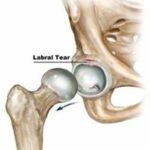Osteopathy vs. Physiotherapy: Which is better for you?
Are you trying to decide between osteopathy and physiotherapy for treating an injury or managing a chronic condition? If so, this blog post is for you! In it, we’ll explore the differences between Osteopathy and Physiotherapy, as well as look at the benefits of seeking Osteopathy.
We’ll also discuss the factors that may influence which is the right choice for your specific needs. By the end of this post, you’ll have a better understanding of the pros and cons of both Osteopathy and Physiotherapy, so that you can make an informed decision.
What is An Osteopath?
Osteopathy is a form of manual therapy and holistic healthcare that focuses on treating the body as a whole. It is based on the principle that all parts of the body are interconnected and can affect each other. Osteopaths use a combination of soft tissue massage, joint manipulation, stretching, and mobilization techniques to improve posture, relieve pain, increase mobility, improve function, reduce stress and tension, and promote relaxation and healing.
An osteopath is a health professional who has undertaken extensive training in musculoskeletal anatomy, physiology, biomechanics, and pathology. Osteopaths assess and diagnose dysfunction in the body and then use a range of hands-on techniques to treat the cause of the problem rather than just addressing the symptoms. They work in partnership with the patient to develop a treatment plan that meets their individual needs.
The overall aim of osteopathy is to restore balance in the body and allow the body to heal itself. Osteopaths may also provide advice on lifestyle and diet, as well as exercise to help the patient regain and maintain their health.
Is Osteopathy Recognised in India?
Osteopathy is a form of alternative medicine that focuses on the diagnosis and treatment of musculoskeletal problems. It has been practiced in India since the late 19th century and has recently become more popular due to its holistic approach to treating many common ailments. And also performed in many clinics for Osteopathy in Dwarka, Delhi
Despite its long history in the country, however, osteopathy is not currently recognized by the Indian government as a legitimate form of healthcare. This means that there are currently no formal regulations or guidelines governing the practice of Osteopathy in India.
While this may make it difficult for those who are interested in pursuing osteopathy as a career, it does not mean that the practice is not effective. Osteopaths in, India have the same qualifications as their counterparts in other countries, and they offer the same range of treatments. In addition, many osteopaths have trained in other disciplines such as chiropractic and physiotherapy, which can be used to complement their work.
Despite its lack of recognition, osteopathy has grown in popularity in India over recent years, with many people seeking out the treatment for a variety of health issues. For those looking for an alternative form of healthcare, osteopathy is worth considering – and with the right practitioner of Osteopathy in Dwarka, Delhi, you can reap the benefits of this safe and effective practice.
What are the differences between Osteopathy vs. Physiotherapy?
Osteopathy and physiotherapy are both forms of healthcare that can be used to treat musculoskeletal pain and other physical ailments. However, there are some key differences between the two that can make it difficult to determine which one is right for you.
One major difference between the two is the approach each one takes when treating a patient. Osteopathy utilizes a more holistic approach, focusing on addressing the body as a whole rather than just focusing on the symptoms. On the other hand, physiotherapy typically relies on hands-on techniques such as joint mobilization, soft tissue release technique, electrotherapy, and exercise therapy to treat the area of complaint.
The major difference between osteopathy and physiotherapy is the way they work with patients. Osteopaths tend to work with their patients over an extended period, developing a long-term treatment plan. Physiotherapists usually take a more short-term approach, with fewer follow-up visits and shorter sessions.
Overall, it can be difficult to determine which form of healthcare is right for you. Your best bet is to talk to both an osteopath and a physiotherapist to decide which one would be best suited for your needs.
Which one should you choose?
The decision of which type of therapist to choose can be a difficult one. Ultimately, it comes down to the individual’s needs and preferences. If you are dealing with an acute injury or trauma, a physiotherapist may be the best choice, as they are trained in the areas of diagnosis and treatment.
An osteopath may be better suited for those looking for more holistic, preventative care. If you are unsure, it is recommended that you consult both types of practitioners to determine which one is right for you.
It is important to note that both types of therapists use evidence-based approaches and that their practices are regulated and monitored. Regardless of which type you choose, it is recommended that you research the practitioner and make sure they have experience treating the specific condition or injury you are seeking help for.
Conclusion
When considering whether an osteopath or a physiotherapist is better for you, it is important to consider your individual needs and preferences. Osteopathy is a holistic approach that focuses on the body as a whole, while physiotherapy may be more focused on treating specific injuries or conditions.
If you are looking for a more personalized treatment approach, then Osteopathy in Dwarka may be the best choice for you. On the other hand, if you require more specialized and targeted care, then a physiotherapist may be the better option. Ultimately, the decision between an osteopath and a physiotherapist should be based on the individual needs of each patient.











